|
When you hear the word ‘hospitality’, what comes to mind? Like most people, I bet you think of hotels, or in some cases, you may think of that one aunt you have who always makes sure everyone’s glass is full and everyone has a seat. If you’re in ministry, ‘hospitality’ may now be synonymous with having coffee and light pastries at early morning meetings. But in a Benedictine sense, hospitality is very different. July 11th marks the Church’s feast of St. Benedict. In the early sixth century, St. Benedict wrote a Rule that he wanted his monks to follow. In 73 short chapters, St. Benedict tried to lay out an entire monastic way of life, so he certainly had a lot of ground to cover. He wrote about everything; from how an abbot should be chosen to how much monks were to eat and drink and where they were to sleep. He also devoted an entire chapter to how guests were to be received and treated. This whole chapter, which is quite brief, can be summed up in the first phrase the Founder writes, “Let all guests who arrive be treated as Christ…” (Ch. 53). Benedict goes into specifics on how guests are to be welcomed and fed, but it all goes back to Christ Himself saying “I came as a guest, and you received Me” (Mt. 25:35). St. Benedict understands, and wants his monks to understand, that Christ can be found in everyone. The first phrase of the last paragraph is a perfect summary of the Gospel message as well, “In the reception of the poor and of pilgrims, the greatest care and solicitude should be shown, because it is in them that Christ is received…” (Ch. 53). How do we treat the stranger on the street, the man selling us a magazine, the immigrant, or the receptionist? Remember also, this does not apply to just the stranger. How do we treat those that we see every day: the coworker, roommate, friend, or classmate? Are these people just a means to an end, are they here for our convenience or happiness, or are they Christ to us? Are we treating them as Christ incarnate or just as another person we have to deal with? Most likely we do not fall into either extreme, but every time we fall short of treating a person as Christ, we fall short of treating God as God. To be hospitable, we do not need to follow the exact instructions of St. Benedict. Our hospitality, like his, should be rooted in charity, in love. It can be quite simple: a smile, a since greeting, or the most common one at my alma mater, the holding of a door for a distant stranger. Hospitality is the easiest way to build up the Kingdom of God here and now. When we welcome the guest, greet the stranger, or feed the hungry, we are doing these things for both God and neighbor. By being hospitable, we are fulfilling the greatest commandment. Let us pray for the intercession of St. Benedict today, asking him to pray for us, that we may be hospitable, welcoming, and loving in every interaction we have. To learn more about St. Benedict, please visit our Catholic Feast Days site. **This post was originally published on July 10, 2014** AuthorBr. Titus Phelan, O.S.B. of St. Anselm Abbey.
0 Comments
When you hear the word ‘hospitality’, what comes to mind? Like most people, I bet you think of hotels, or in some cases, you may think of that one aunt you have who always makes sure everyone’s glass is full and everyone has a seat. If you’re in ministry, ‘hospitality’ may now be synonymous with having coffee and light pastries at early morning meetings. But in a Benedictine sense, hospitality is very different. July 11th marks the Church’s feast of St. Benedict. In the early sixth century, St. Benedict wrote a Rule that he wanted his monks to follow. In 73 short chapters, St. Benedict tried to lay out an entire monastic way of life, so he certainly had a lot of ground to cover. He wrote about everything; from how an abbot should be chosen to how much monks were to eat and drink and where they were to sleep. He also devoted an entire chapter to how guests were to be received and treated. This whole chapter, which is quite brief, can be summed up in the first phrase the Founder writes, “Let all guests who arrive be treated as Christ…” (Ch. 53). Benedict goes into specifics on how guests are to be welcomed and fed, but it all goes back to Christ Himself saying “I came as a guest, and you received Me” (Mt. 25:35). St. Benedict understands, and wants his monks to understand, that Christ can be found in everyone. The first phrase of the last paragraph is a perfect summary of the Gospel message as well, “In the reception of the poor and of pilgrims, the greatest care and solicitude should be shown, because it is in them that Christ is received…” (Ch. 53). How do we treat the stranger on the street, the man selling us a magazine, the immigrant, or the receptionist? Remember also, this does not apply to just the stranger. How do we treat those that we see every day: the coworker, roommate, friend, or classmate? Are these people just a means to an end, are they here for our convenience or happiness, or are they Christ to us? Are we treating them as Christ incarnate or just as another person we have to deal with? Most likely we do not fall into either extreme, but every time we fall short of treating a person as Christ, we fall short of treating God as God. To be hospitable, we do not need to follow the exact instructions of St. Benedict. Our hospitality, like his, should be rooted in charity, in love. It can be quite simple: a smile, a since greeting, or the most common one at my alma mater, the holding of a door for a distant stranger. Hospitality is the easiest way to build up the Kingdom of God here and now. When we welcome the guest, greet the stranger, or feed the hungry, we are doing these things for both God and neighbor. By being hospitable, we are fulfilling the greatest commandment. Let us pray for the intercession of St. Benedict today, asking him to pray for us, that we may be hospitable, welcoming, and loving in every interaction we have. To learn more about St. Benedict, please visit our Catholic Feast Days site. **This post was originally published on July 10, 2014** AuthorBr. Titus Phelan, O.S.B. of St. Anselm Abbey. Over the past year as I helped develop the Catholic Feast Days website, I was always struck by the number of saints whose feast days were in July. As we enter into this July, I found myself reflecting on the lives of the saints whose feasts are celebrated this month. From apostles to saints in our era and everywhere in between, the lives of the saints celebrated this month have offered great spiritual nourishment to me. Three well-known Saints: This month we get to celebrate three powerhouse saints: St. Benedict, St. Bonaventure, and St. Ignatius of Loyola. Sometimes I find it hard to relate to some of these well-known saints. St. Benedict helped found modern monasticism. St. Bonaventure was one of the greatest theologians of his time. St. Ignatius of Loyola founded the Jesuits. Together they set a pretty high, almost discouraging, standard that feels hard for me to reach. But, as I continue to learn more about their lives, I realize that throughout their ups and downs, they offered themselves to God, no matter how high the mountain or low the valley. Likewise, God is calling us to follow Him. He is calling each of us individually, wherever we are in our lives, to do the same. Four Saints on the Way: Starting later this week, we get to celebrate four ‘Blesseds’ in the Church: Bl. Pier Giorgio Frassati, Bl. Maria Romero Meneses, Bl. Stanley Rother, and Bl. Solanus Casey. Even among these four Blesseds, I can see the beauty in how God calls each of us personally. Whereas Bl. Pier Giorgio Frassait was a young Italian known for his social activism, Bl. Maria Romero Meneses was a Nicaraguan sister who devoted her life to teaching and helping all throughout Central America. Whereas Bl. Solanus Casey was a humble American Capuchin known for his spiritual counseling, Bl. Stanley Rother was an American pastor who volunteered for mission work in Guatemala for 15 years until he was martyred in 1981. Through the witnesses of their lives, these four Blesseds inspire me to live my life striving for holiness in whatever way God is calling me. Families of the Saints: Throughout this entire month, we are reminded of the importance of family in the lives of so many saints. Sts. Louis and Zellie Martin are the parents of two saints, including the well-known St. Therese of Lisieux. St. James the Apostle is the brother of St. John the Evangelist, also one of the Apostles. Sts. Joachim and Anne are the parents of Mary, the grandparents of Jesus, and the patron saints of grandparents. St. Bridget of Sweden is the mother of St. Catherine of Sweden. All of these saints helped me reflect on the importance of our families in our journey of faith. For many of us, let us follow the model of these saints and take advantage of the easing pandemic restrictions to get to see family members we may not have seen in well over a year. Not as well-known Saint for the Month: One saint in July who I wasn't very familiar with was St. Camillus de Lellis. I eventually learned that he was one of the patrons of the sick. The religious order he founded, the Camillians, is known as the Ministers to the Sick. What I find particularly inspiring about his life was that St. Camillus himself was sick most of his life and was in a state of constant suffering, yet he still devoted himself to this ministry. There are stories of him being unable to walk. Instead, he would crawl to visit the sick. Even as there is a light of hope to the eventual ending of the pandemic, let us continue to hold in prayer those who are sick with any ailment and those who care for them, and let us as the People of God pray for the intercession of St. Camillus. As we go throughout this July, let us walk with the saints as role models for offering to God all of our highs and lows while trusting Him wherever He leads us. To learn more about the saints, visit our Catholic Feast Days Website by clicking here. To view a calendar of the feast days in July, and each month, click here.
“Come away by yourselves to a deserted place and rest a while.” (Mark 6:31)
The Apostles had been sent out by Jesus and reported back all that they had done (Mark 6:30). He knew that they needed to care for themselves, so they set out in the boat to go and rest. But, what did they find when they arrived? Over 5,000 people waiting to be fed both spiritually and physically. Despite their probable fatigue, they continued to minister to the needs of the crowd. Their rest was not long, but they did have time together in the boat away from the crowds. They also rested in the Lord as he spoke to them and the crowds. Self-care, therefore, does not mean long periods of time, but that which is needed to move us into fuller service for Christ. When moments of self-care such as prayer, study and spiritual reading, appropriate times of rest and relaxation, or time with friends and family are neglected, living as an apostle who accompanies others into deeper life in Christ can become challenging. Self-care is not self-focus; it is not self-serving. Very often caregivers, especially of the elderly or infirmed, become ill themselves because they have not set apart time for self-care. It is understandable. They want to give fully to their loved ones. Those in ministry or the apostolate want to do the same for the beloved of Christ. In both instances, though, great damage can come to the caregiver—leaving them unable to care. Self-care is meant to assist in becoming more other-focused, more self-giving. In many ways, the great founder of Western monasticism, St. Benedict, whose feast day is today, understood well what is at the heart of Christian self-care – ora et labora – prayer and work in the context of a stable community life. When either are neglected, then one is not able to give fully for the Lord. Life in community, whether in a religious community such as a monastery, or in the community of faith, gives one a stable place to be accompanied, to grow in the spiritual life, and to rest with Christ, especially in the Eucharist. Relationships can be built in trust and burdens can be shared. Peace that comes from the Prince of Peace can then be found. It is this peace, love, and mercy that we share with others as his apostles. In the last months, a former student of mine discerned that he is called to live as a Benedictine, another discerned that he is called to the Dominicans, another as a diocesan priest, and two others that they are called to marriage. Prior to these decisions, there was much prayer, but also a bit of a lack of inner peace. Accompanied by many, these young adults came to peace in their decisions as their way to follow Christ as his apostles. Please pray for them. Pray also for those, especially in ministry and apostolate, who are not properly caring for themselves. May we accompany them to care for themselves so that they may better care for the People of God. May the Charity of Christ urge us on! For more resources on Self-Care in Ministry, please click here.  “Faith Seeking Understanding” is the motto of St. Anselm of Canterbury, whose feast we celebrate today, is a reminder to all Christians to seek God not only with our hearts but with our minds as well. St. Anselm, a Benedictine monk who lived during the 11th century, was known throughout Europe for his mind. He was a great scholar and strategist, having often put his wits against those of the English monarchy to try and preserve his own life and the life of the Church in England. However, his exercise of intellect during his life is not the “understanding” that his motto would prompt us to seek, nor that which lead him to be canonized a Saint. Rather it is the knowledge which Pope Francis spoke of in his general audience on May 21, 2014 “When we speak of knowledge, we immediately think of man’s capacity to learn more and more about the reality that surrounds him and to discover the laws that regulate nature and the universe. The knowledge that comes from the Holy Spirit, however, is not limited to human knowledge; it is a special gift, which leads us to grasp, through creation, the greatness and love of God…” This kind of knowledge, the knowledge of God, is far more precious than any other. How then do we obtain this most precious knowledge? St. Anselm would probably quote the words the founder of his order, St. Benedict, by saying “ora et labora” (pray and work). Indeed prayer and work, focused on God, will help lead someone to better understand God. Pope Francis, in that same audience on May 21st, gives us a possible focus for that prayer and work: creation. The Holy Father noted that although God gave the gift of His creation to man, that does not make mankind the “masters of creation.” The Holy Father continued by saying that “creation is not some possession that we can lord over for our own pleasure; nor, even less, is it the property of only some people, the few: creation is a gift…” All around us, especially as new life comes forth during this spring season, we can see God’s creation in its majesty. We must work then to care for it but also reflect and pray upon it. We must always seek to understand God so as to better conform our own lives to His will. Faith is a gift, and having faith is not the end of a journey but the start of a new one. St. Anselm teaches us that we must use our faith to seek understanding of the world around us and of the God who created us! Patrick Burke is a staff member at The Catholic University of America in Washington, D.C.
 When you hear the word ‘hospitality’, what comes to mind? Like most people, I bet you think of hotels, or in some cases, you may think of that one aunt you have who always makes sure everyone’s glass is full and everyone has a seat. If you’re in ministry, ‘hospitality’ may now be synonymous with having coffee and light pastries at early morning meetings. But in a Benedictine sense, hospitality is very different. July 11th marks the Church’s feast of St. Benedict. In the early sixth century, St. Benedict wrote a Rule that he wanted his monks to follow. In 73 short chapters, St. Benedict tried to lay out an entire monastic way of life, so he certainly had a lot of ground to cover. He wrote about everything; from how an abbot should be chosen to how much monks were to eat and drink and where they were to sleep. He also devoted an entire chapter to how guests were to be received and treated. This whole chapter, which is quite brief, can be summed up in the first phrase the Founder writes, “Let all guests who arrive be treated as Christ…” (Ch. 53). Benedict goes into specifics on how guests are to be welcomed and fed, but it all goes back to Christ Himself saying “I came as a guest, and you received Me” (Mt. 25:35). St. Benedict understands, and wants his monks to understand, that Christ can be found in everyone. The first phrase of the last paragraph is a perfect summary of the Gospel message as well, “In the reception of the poor and of pilgrims, the greatest care and solicitude should be shown, because it is in them that Christ is received…” (Ch. 53). How do we treat the stranger on the street, the man selling us a magazine, the immigrant, or the receptionist? Remember also, this does not apply to just the stranger. How do we treat those that we see every day: the coworker, roommate, friend, or classmate? Are these people just a means to an end, are they here for our convenience or happiness, or are they Christ to us? Are we treating them as Christ incarnate or just as another person we have to deal with? Most likely we do not fall into either extreme, but every time we fall short of treating a person as Christ, we fall short of treating God as God. To be hospitable, we do not need to follow the exact instructions of St. Benedict. Our hospitality, like his, should be rooted in charity, in love. It can be quite simple: a smile, a since greeting, or the most common one at my alma mater, the holding of a door for a distant stranger. Hospitality is the easiest way to build up the Kingdom of God here and now. When we welcome the guest, greet the stranger, or feed the hungry, we are doing these things for both God and neighbor. By being hospitable, we are fulfilling the greatest commandment. Let us pray for the intercession of St. Benedict today, asking him to pray for us, that we may be hospitable, welcoming, and loving in every interaction we have. Michael Phelan is in his second and final year in the Echo Program at the University of Notre Dame. He is a graduate of Saint Anselm College, a Benedictine school, in Manchester, N.H.
 The first time I stayed in a Benedictine monastery, I was struck by the silence, especially since the monastery was only a few hundred feet away from my dorm (which was never silent). During meals in the refectory, walks in the hallways or the monastic cloister, down time in my assigned cell, both at daytime and during the night, there was a serious, purposeful silence. In his Rule, Saint Benedict constantly encourages his monks not to speak too much, and especially to abstain from vulgar and scurrilous speech. But what is the point of this silence? Why does Saint Benedict praise it so highly? “Listen carefully.” This is the first and most basic instruction laid down by Saint Benedict in his Rule, written for monks in the early sixth century. He was telling his monks to perk up and pay attention, because important guidelines for monastic life were coming their way in the ensuing 73 chapters. His advice, in those two words, seems to sum up much of Benedictine spirituality. Saint Benedict’s world was not too different from the world we live in today. His life began in the year 480, only four years after the fall of the Roman Empire. He was a witness of political upheaval, international war, and class warfare. This is not much different from our times. His answer to all these problems, however, was not to escape from the world in a monastery, but to find a place in which he could seek God in a stable environment. Why, then, is St. Benedict’s first piece of advice to listen? Saint Benedict was a keen observer of the human person, and he recognized what was separating people: noise, both internal and external. Even today, how comfortable are we with silence? Think about it. We need music in order to drive down the street; we need music to go for a run; some even need ‘white noise’ in order to fall asleep. How often do we see people, old and young, with their nose buried in a phone or searching for the next song instead of enjoying and appreciating God’s gift of creation around them? Or internally, are we truly listening to the other person in the conversation, instead of just thinking about what we will say next? Silence is the first step. Once we stop talking, turn off our music or put down our phones, then we have to quiet ourselves on the inside. We need to begin, in silence, to find Christ in the other. In each one of us there is an innate yearning, which can only be discerned and realized when we slow down from our own business and busyness and understand that we all want something more. God speaks in the silence of our hearts. Therefore, you have to “attend with the ear of your heart” to what God is calling you to. The Prologue of the Rule of Saint Benedict has, in my opinion, some of the most beautiful language ever written. I would suggest to anyone who has never read it to get it immediately. Saint Benedict wrote an amazing line – a rhetorical question – “What, dear brothers, is more delightful than this voice of the Lord calling to us?” But how can we ever hope to hear this delightful voice of the Lord unless we stop and listen? Saints Benedict and Scholastica, pray for us! Michael Phelan is in his final year in the Echo Program at the University of Notre Dame and serves as an Apprentice Catechetical Leader at Nativity Catholic Church in Brandon, FL, in the Diocese of St. Petersburg. He is a graduate of Saint Anselm College, a Benedictine college, in Manchester, NH.
I would never have considered myself spiritually poor before I came to CVV. In lots of ways, I wasn’t—I had grown up in a strong Christian family and had developed a meaningful faith life. I felt like my relationship with God, while not perfect by any means, was a personal one; I lived my life pretty strictly according to my morals and values. Coming to Denver, I never anticipated the immense growth in my spirituality that would occur, and how it would change me; how it would push me to look for God outside the times I set apart for Him, but to recognize Him in the day to day experiences of my life. Learning theological reflection has helped open my eyes to a deeper understanding of God.
I read the The Little Prince by Antoine de Saint Exupéry on our spring retreat to St. Benedict’s Monastery a few weeks ago, and while I was reading it for entertainment, it struck me a very real way. “The desert is beautiful,” the little prince said. The book continues, “And that was true. I had always loved the desert. One sits down on a desert sand dune, sees nothing, hears nothing. Yet through the silence, something throbs and gleams…” This year has opened me up to that throbbing and gleaming in others, in situations that seem hopeless, and in times when it’s hard to see past my own prejudices. CVV has opened my eyes to seeing God in those times when I have failed in the past to recognize Him. I see Him now on the mundane days sitting at the register at Safari Thrift, because He is the thankfulness in those who are homeless who are accepted here; He is the joy in the lonely people that come not to shop but to talk to someone who will listen; He is in the relationships that are formed between myself and the refugees, even though we can’t speak the same language; He is the invisible force in the day that makes it beautiful, even when it seems ordinary. This year has taught me to see God in these things, and to more fully understand the wisdom of the little prince, “It is only with the heart that one can see rightly; what is essential is invisible to the eye.” Christy Titus, Colorado Vincentian Volunteer Corps. This post was originally written and posted on the Catholic Volunteer Network Blog. For more Catholic Volunteer Blog Posts please visit the CVN Blog Page. The Catholic Apostolate Center is proud to partner with the Catholic Volunteer Network by developing faith formation resources for volunteers and alumni, assisting in its efforts to provide and advocate for faith-based volunteerism and collaborate in many additional ways. |
Details
Archives
July 2024
Categories
All
|
About |
Media |
© COPYRIGHT 2024 | ALL RIGHTS RESERVED

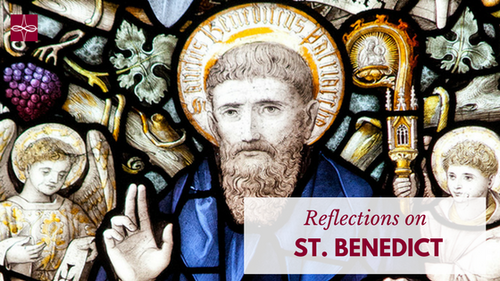
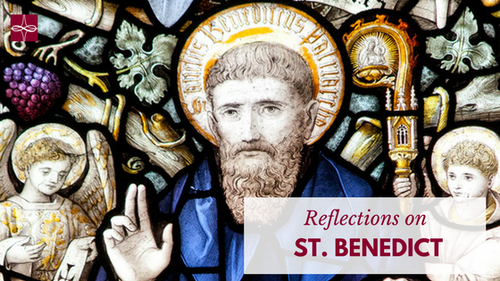
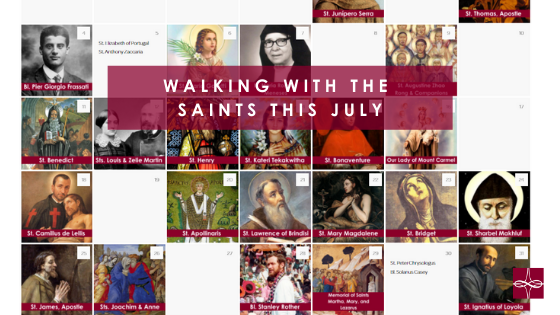


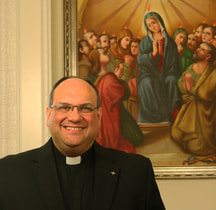
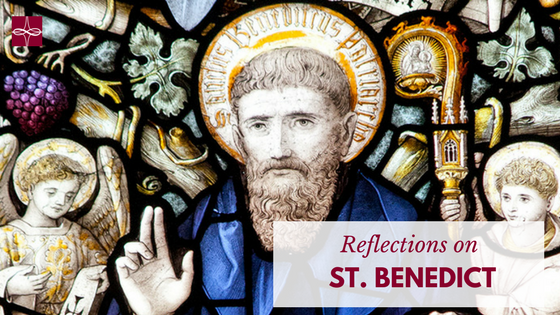

 RSS Feed
RSS Feed